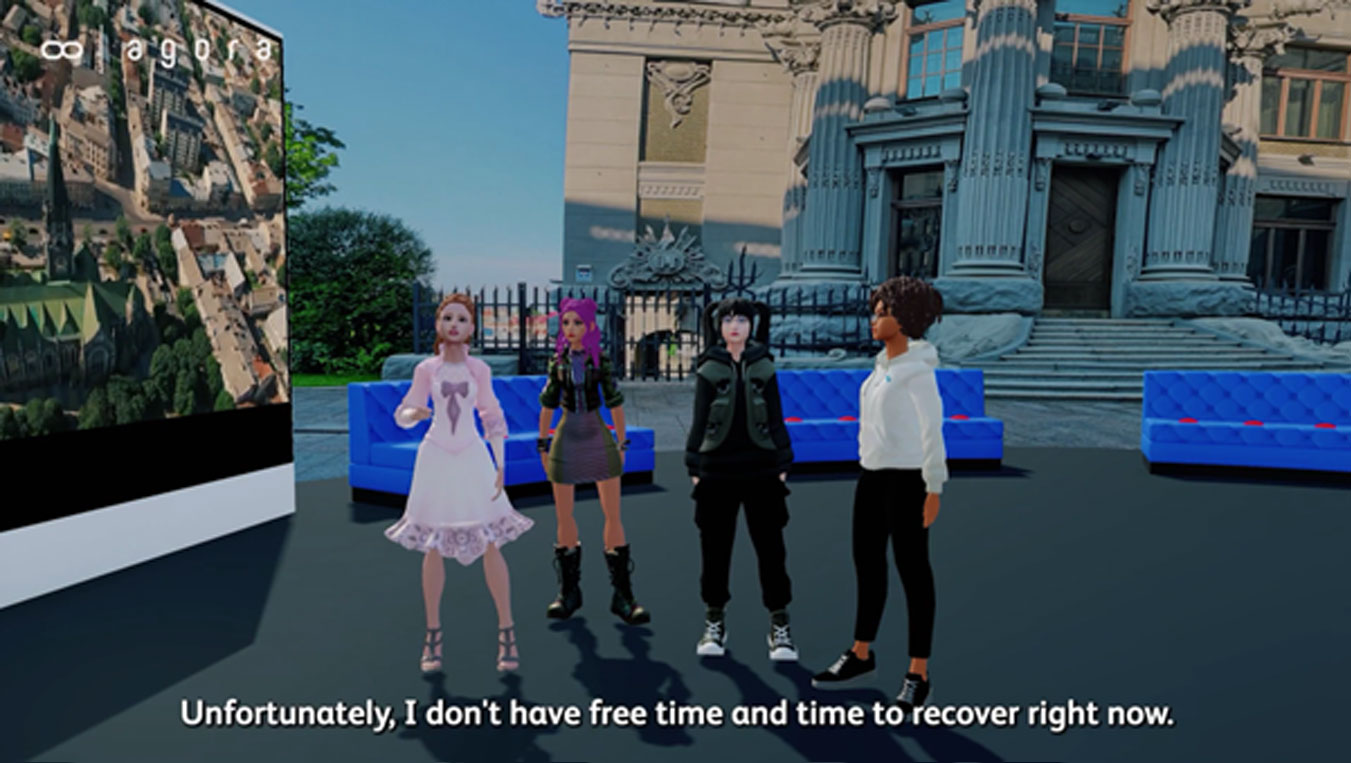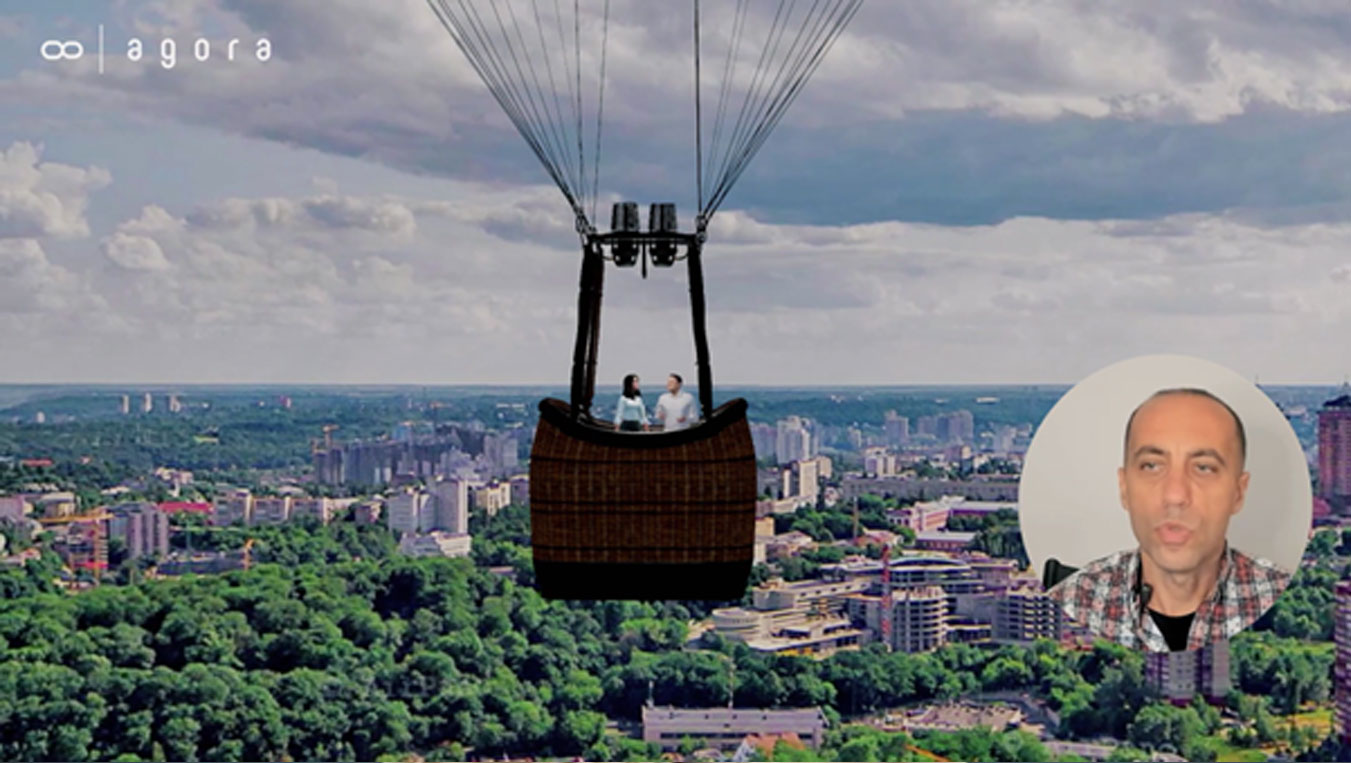Romanian university professor and American researcher want to offer Ukrainian refugees psychological help in metaverse
Three Ukrainian women talk to a moderator in a square in the centre of Kiev about some of the difficulties they have encountered since they were forced to leave their country to take refuge in Romania. The discussion ranges from language barriers to children's schooling problems, from public transport to the exhaustion of trying to help others in the same situation. Although the experiences are as real as it gets, the meeting takes place in a virtual space and involves the avatars of the protagonists.

We are watching an excerpt from a pilot session, part of a project initiated by psychologist Cezar Giosan, PhD at the Faculty of Psychology and Educational Sciences of the University of Bucharest, and psychologist Albert "Skip" Rizzo, director of the medical virtual reality department at the Institute for Creative Technologies of the University of South Carolina.
Virtual Ukraine aims to create metaverse sites in Kiev, where refugees, represented by their avatars, will be able to share their life experiences and feelings. The real identity of the participants is known only to the moderator, the avatars are created by each person according to their own preferences, and the voice can be changed so that no one can be identified in real life if they don't want to, says Cezar.
"Sharing life experiences with people who have gone through similar ones can be therapeutic, can lead to positive psychological effects. The fact that they get together there, in a group, in that metaverse, and start talking about what it's like in Romania, how they adapted, what problems they had, that brings psychological benefits," he says. The moderator, a young doctoral student in psychology from Kazakhstan, was instructed not to lead the discussion into possible traumas, in part because of the Ukrainians who might watch the pilot session. "After going through a traumatic experience, some people develop PTSD, post-traumatic stress disorder, and one of the most important symptoms in post-traumatic stress is avoiding things that remind you of the trauma, because if you are confronted against your will with a situation that reminds you of traumatic events, you can have a panic attack," explains Cezar Giosan.

One possible therapy method
Based on the feedback received from the participants in the first two support groups, the developers of the project, created with the help of a tech startup co-founded by two Romanians, started to improve the user experience, so that access to the metaverse would be easier and more intuitive. At the same time, they approached several psychologists in Kiev to explore how the idea could be replicated. Beyond support groups, the project aims to develop a solution to treat post-traumatic stress in the metaverse, where things like tanks and gunfire and air strikes can be reproduced.

"The goal is to put someone through the traumatic experience in a gradual, really slow pace, standard being 10-12 sessions. At first, using very little things that resembling the traumatic event, and, in subsequent sessions, getting closer and closer to the traumatic event. As you get closer, you encourage them to describe what they went through, but not everything, because that's why it's called gradual exposure", adds Cezar Giosan.
Virtual reality was used in the treatment of post-traumatic stress for a long time, especially in the US, where there are a large number of war veterans. Professor Albert "Skip" Rizzo has been honoured since 2010 for his achievements in this field by the American Psychological Association. With a PhD from New York, Cezar Giosan says he also used this approach while working at Cornell University's Department of Psychiatry in the US with victims of the 9/11 attacks. But exposure therapy using virtual reality requires people to be physically present in the therapist's office.
What psychologists are now trying to do is to help remote patients in a virtual environment. So metaverse could be a solution for those who, because of physical distance, would never be able to attend support group sessions or one-to-one therapy. "I think the metaverse will help in niche areas, I think that's where it will be very useful. I don't think anyone is going to come home from work and walk around Herăstrău in a metaverse, but I think it can be effective in psychotherapeutic interventions," says the psychologist. While nothing is as valuable as a face-to-face meeting with a therapist, interaction in a virtual universe is preferable to a static interaction on Zoom or a conversation over the phone or chat, he believes: "This immersive experience, its naturalness, the fact that you can move and use gestures via your avatar helps a lot."
From adjustment disorders to PTSD
At the moment there is a huge need for psychological services for Ukrainians who are suffering every day from the war started by Russia. "Some refugees are coming in with war trauma. I have heard of atrocities happening to family members of Ukrainians, one refugee's sister was raped and murdered in front of her. There are incredible traumas that these people have gone through. Studies show that about 20% of a population exposed to severe trauma will develop post-traumatic stress disorder. Specifically 12% will develop PTSD, and the remaining up to 20% will develop a milder, "sub-threshold" form of PTSD. Basically, two out of ten people in a population have symptoms of PTSD, which are extremely disabling, especially in severe forms.
Some don't show up with traumas like the ones we talked about, some have relocated, fled the war, but they haven't experienced war trauma, nothing has happened to them personally. What happens with these people who are uprooted is that they often develop a condition called adjustment disorder, which is very much like depression, manifests itself in feelings of sadness, meaninglessness, anxiety and so on. Some do not cope, and those who do can go from adjustment disorder to depression, which is far more disabling. Based on what I discussed with refugees in Romania, they all say the same thing: "it's hard for me to adapt here because I gave up a house in Ukraine, I abandoned my parents there, I don't know much about my friends, I'm stressed that the people I left behind might die", says Cezar.

















